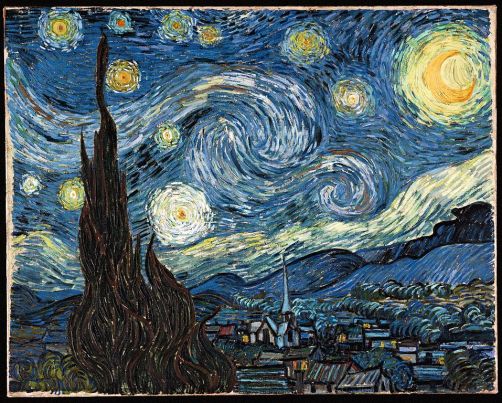Category Archives: Uncategorized
Soteriological Summary
Pelagianism
Grace is optional. Man is inherently capable of obeying God. As the first man, Adam typified the choice that every human makes to obey or disobey God. His “original sin” was simply the first sin, and sets a bad example for the rest of humanity, but did not change the subsequent nature of mankind or destroy man’s ability to obey. As the “second Adam,” Jesus sets a good example of a man who consistently obeyed God. Jesus’ death on the cross is not necessary for man’s redemption, but represents the ultimate act of selflessness to inspire man to endure suffering and sacrifice his own desires.
Analogy: A man is swimming in the ocean. He can make the decision to swim to safety, where God stands on the shore calling, or he can ignore God and stay out in the water where he will eventually drown.
Semi-pelagianism
Grace is necessary, in part. Man is inherently capable of hearing God’s voice and choosing to obey, but his ability to actually obey has been damaged (the result of inheriting a corrupted nature from Adam). In response to man’s decision to obey, God extends his grace to enable man to obey.
Analogy: A man is close to drowning in the ocean. If he tries to swim to shore, he will in fact drown. He sees and hears God on the shore, and he calls out to God for help. In response, God provides a life jacket so that the man may safely swim to shore.
Arminianism
Grace is necessary, but not sufficient. As a result of Adam’s sin, man now has a sin nature that is so thoroughly corrupted that he has lost all ability to please God. However, God in his grace, has extended prevenient grace to all men, effectively counteracting total depravity, leaving man still depraved (totally depraved, in and of himself), but now with the undeserved (and foreign to his own nature) ability to respond to God’s gift of salvation. Man can choose to accept God’s grace, receive a new nature, and rely on God’s grace for salvation, or he can choose to reject God’s grace and remain in (or, at a later date, return to) his depraved condition.
Analogy: A man is drowning in the ocean, and has lost consciousness. God awakens the man, places him on a lifeboat and begins pulling the man to shore. As long as the man does not intentionally get off the lifeboat, he will be saved.
Calvinism (aka Augustinianism)
Grace is necessary and sufficient. As a result of Adam’s sin, man now has a sin nature that is so thoroughly corrupted that he has lost all ability to please God. The only way for man to respond positively to God is for God to replace the dead heart of stone with a new nature, a nature that is inherited from Jesus instead of Adam. As a result of God’s regeneration, those whom God has elected will freely respond in obedience to God.
Analogy: A man has drowned in the ocean. God sends Jesus to breathe new life into the man and carry him to shore.
Order From Disorder
“When will I ever use _________ in real life?” Students (and sometimes their parents) ask this question about algebra, trigonometry, calculus, chemistry, grammatical parts of speech, literature, history, or other subjects that they find difficult to learn.
As human beings created in the image of God, one of the ways we reflect God’s image is by creating order from disorder. Although God created ex nihilo (which we as humans cannot do), part of his creative effort was to create order from disorder. Genesis 1:2 tells us that the initial state of the earth was “formless.” The first thing God did was to separate light (day) from darkness (night). Next he separated the waters above (sky) from the waters below, and finally he separated the waters below (sea) from the dry ground (land).

When humans “create,” we use our God-given faculties to put things in a meaningful order or structure. Scientific and mathematical discoveries are all about discovering the order that God has instilled in the universe, and utilizing that order to discover yet more and harnessing that order in ways that benefit us. Learning about, and helping to define the order of our world isn’t just useful for those considering STEM (Science, Technology, Engineering, and Mathematics) careers (although this is certainly a very good reason for learning these subjects). It is also an exercise in understanding and reflecting our Creator.
It’s fairly easy to see how science is a means of discovering and utilizing the order that exists in the physical world around us, while mathematics may be described as a logical structure explaining and predicting what we observe in the physical world. But this exercise in observing and creating order is not limited to just the fields of math and science. Language and art is also about creating order and meaning.
Without organizing thoughts and meanings into words and language, our communication would be limited to pointing and grunting. Assembling words with no regard for their order and structure is what we call “gibberish.” This is why all students should welcome the opportunity to learn sentence structure, parts of speech, and how different ways of organizing words can enhance meaning. A sonnet, a haiku, a pun, a limerick, etc., are different ways of organizing and structuring words and thoughts that may elicit a different response than if they were organized differently. So, even if the language arts are not “your bag,” there is value in understanding how words are ordered and structured. Again, putting random words into a meaningful order is a creative process that reflects our Creator and it gives Him glory when we follow Him in creating order from disorder.
It should be clear by now that the visual arts and musical arts are also creative outlets for producing order and structure in a way that reflects and glorifies our Creator. A piece of artwork keeps colors and lines separated and ordered in a way that creates meaning. A musical composition arranges notes and sounds in a certain order. Whether someone finds that order “pleasing” or not, it’s still a creative effort that can be distinguished from random, unordered sounds (aka “noise”).
Proverbs 25:2 says, “It is the glory of God to conceal a matter; to search out a matter is the glory of kings.” Even those of us who are not kings can partake in the glory of kings and the glory of God by seeking to find and create order in the world around us. Keep this in mind the next time you are struggling to solve a quadratic equation or remember what a dangling gerund is.
